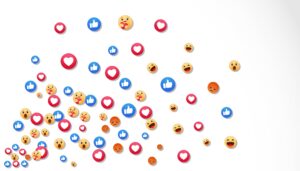Podcast: Play in new window | Download
Lead generation is one critical area for any business. However, once you get those leads, they are not always ready to buy immediately. That is why being able to nurture both candidates and clients in today’s market could be the difference that makes the difference for you and your marketing this year.
What Is Nurturing?
Let’s clarify what nurturing is, why you need to do it first, and why particularly now.
Now, what is nurturing?
Nurturing is about getting people to know more about you, your product, and your service before they decide to work with you. These individuals may need multiple touchpoints before they are at a place where they are ready to say yes.
This process is based on research from an amazing guy called Eugene Schwartz. He is one of the godfathers of marketing and advertising, and he identified a process called the Market Awareness model.
The Market Awareness Model
Schwartz teaches that as buyers decide to purchase, we go through different phases of awareness.
There are certain phases of this model I want to share. It makes sense for you that people go from unaware of your offer, product, or service to aware.
Let’s say you work in engineering, and an engineering professional comes across you.
They want a new job, or they’re an engineering company expanding; both groups have a problem to solve.
Now, for some people, I know this sounds crazy; they may not even be aware of how a recruitment company can help them. They may be cynical about the recruiting process, so they’re unaware you can help them in the way you can.
This is particularly true of candidates.
Now, of course, when it comes to B2B marketing, some people are aware that they have a problem, and then they move into this the next phase, which is awareness.
They know that they have an issue, and they want it to be solved.
The problems will be; I need a new job, or I want to develop my career, or I need to build this team. They’ve got a problem, and they are becoming solution aware. That means they go out and look at solutions for their pain but haven’t decided yet what is the best solution.
Now, this is where they can become what’s known as solution aware. They’ve looked at different solutions to the problems but haven’t decided on the best possible solution.
- Do I do it myself?
- Do I write to a company?
- Do I apply directly there?
- Do I go on to one of the job sites,
- or do I go to a recruiter?
They have become more you-aware, so they’re aware that, “Oh, hang on a minute here, there’s a recruitment company that is a specialist in engineering that maybe I could work with them or, oh, hang on a minute here, I’ve seen this recruitment company on LinkedIn a lot.
They say they can help me build the talent pipeline, our talent pipeline; maybe we should contact them.
That’s when they become deal ready 💥💥
Now, the thing about this is it can take quite a significant amount of time for this to happen. I’ll give you an example.
I have the desire to buy a lodge in Scotland. It’s been one of my bucket list goals for some time. Haven’t quite got around to it. It’s not going to happen in the next 12 or 18 months.
However, I have started, lovely Facebook that it is; I’ve started surfing and looking online, and of course, I’m being retargeted now by Facebook and all these different adverts.
I’m looking at where there are different types of lodges in other places with additional facilities. I am now looking for solutions, but I am not ready to buy yet.
I’ve downloaded a couple of brochures and had a look. I’m not ready to go and look at this yet. However, I’m on several email lists and am being emailed because those individual companies are nurturing me now. After all, I expressed a want, and now I’m on their email list, and they’re keeping in touch with me.
There’s one particular one that’s pretty good, and I like them. They’re around Loch Lomond, and I’m looking at that. They’re building a connection with me now.
People don’t tend to buy lodges overnight; It’s not a rash decision. They may be fully aware that I could be on their email list for two years before I buy something. However, they are nurturing me with pictures and invitations to go and look around one of their sites to have a low-cost weekend maybe there. They are starting to nurture me because they understand that I am going through different parts of the buyer cycle.
This is a high-value purchase and something that I am not going to jump into straight away. Now, when you look at people and recruitment in general, that is a high-value purchase.
Let’s use an example of engineering again: the engineering role in question is £/$ 50k.
Let’s say the fee for this is 20%. You will get a 10K placement fee when you place that role, which is pretty significant. However, that candidate isn’t somebody you’re just going to pull out of thin air. It’s probably going to be somebody that you have come across that’s been on your database for a while that you are starting to nurture rather than you just going to ring somebody up out the blue that they may have uploaded their CV, but they’ve never heard from you.
Using Nurture Will Increase Your Client and Candidate Conversions
Using nurture will increase your conversion.
When you think about how the market is at the moment, do you think if candidates or clients have not heard anything from you, they’re likely to come and work with you to find them a role, a position, rather than somebody that’s been nurturing them, has been sending them great content, giving them ideas, helping them map their career out?
Who do you think they will work with as time moves on?
It’s human nature.
It’s one of Cialdini’s principles of influence; called reciprocity. You’ve been helping them, and now you are going to be the first person that they contact when it comes to looking for that next role.
It’s the same with everybody; for many recruiters, one reason they get so stressed out is they rely on spot business. They count on picking up the phone and calling the people ready to move now; only.
Those who are ready to buy now are a very small percentage of the overall population that could buy. They don’t spend the time nurturing their candidates and clients because then if they did, trust me, life becomes so much easier because things are popping up in a good way.
People are contacting, picking up the phone and speaking to you. People open those emails that you’re sending because what you’ve done is you’ve built some great rapport with them.
You’ve built some skin in the game with them because you are helping them all the time. Trust me; people want to be nurtured in today’s environment rather than just having somebody pick up the phone they have never really heard of that sends them a connection on LinkedIn straight away, so, “Well, I’ve got a job. Do you want to have a conversation with me?”
That can work for some people, but not everyone, particularly those passive candidates and those you now want to be able to place; That’s the benefit of nurture.
Thanks,
Denise
How We Can Help You Set Up Nurture Campaigns
For our clients, we provide and write campaigns for them around nurture. They find this a complete revelation for them when they start working with us as members of Superfast Circle and how marketing can work when it comes to nurturing people all along the buyer’s cycle; if you want to find out more, drop us an email or book a quick call here.






